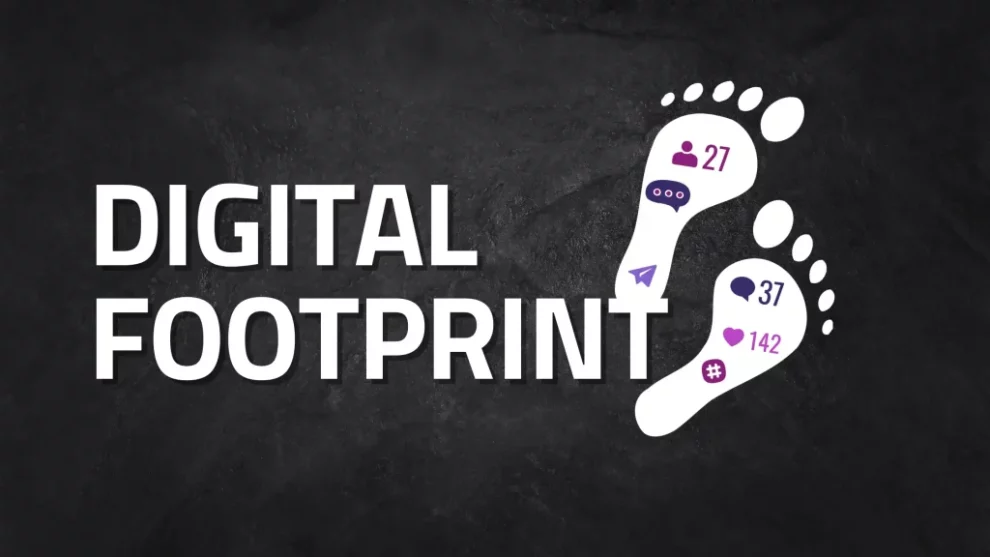In the bustling online world, every click, swipe, and purchase leaves an indelible mark – our digital footprint. This trail of data, once confined to the shadows, is increasingly shaping our lives, raising vital questions about privacy and control. As technology races forward, can we ever truly control our digital footprints, or are we destined to be tracked and profiled indefinitely?
The Shifting Landscape of Privacy:
From social media interactions to browsing habits, our digital activities generate vast amounts of data, collected by businesses, governments, and even AI algorithms.
Data Collection Explosion:
This data fuels the engine of targeted advertising, making every ad feel eerily personal, but often at the cost of our privacy. Technological advancements like facial recognition blur the lines between public and private, raising concerns about mass surveillance and potential misuse. Privacy laws like GDPR and CCPA aim to give individuals more control over their data, but their effectiveness and enforcement remain uncertain.
Targeted Advertising:
This data fuels the engine of targeted advertising, making every ad feel eerily personal, but often at the cost of our privacy. Technological advancements like facial recognition blur the lines between public and private, raising concerns about mass surveillance and potential misuse. Privacy laws like GDPR and CCPA aim to give individuals more control over their data, but their effectiveness and enforcement remain uncertain.
Facial Recognition and Surveillance:
This data fuels the engine of targeted advertising, making every ad feel eerily personal, but often at the cost of our privacy. Technological advancements like facial recognition blur the lines between public and private, raising concerns about mass surveillance and potential misuse. Privacy laws like GDPR and CCPA aim to give individuals more control over their data, but their effectiveness and enforcement remain uncertain.
Regulations and Rights:
This data fuels the engine of targeted advertising, making every ad feel eerily personal, but often at the cost of our privacy. Technological advancements like facial recognition blur the lines between public and private, raising concerns about mass surveillance and potential misuse. Privacy laws like GDPR and CCPA aim to give individuals more control over their data, but their effectiveness and enforcement remain uncertain.
Controlling our Digital Footprints:
Privacy Settings:
Familiarize yourself with privacy settings across platforms, restricting data collection and sharing where possible. Choose services that require minimal data and avoid oversharing personal information online.
Data Minimization:
Explore privacy-focused technologies like DuckDuckGo privacy-focused search engines or Signal for encrypted messaging. Regularly disconnect from the digital world to regain control of your attention and prevent data collection.
Alternative Technologies:
Support organizations advocating for stronger privacy laws and raise awareness about digital privacy issues. Striking a balance between individual privacy and societal benefits like crime prevention or personalized healthcare remains a complex challenge.
Digital Detox:
Advances in blockchain, decentralized data storage, and encryption offer potential solutions for more secure and user-controlled data ownership. Holding companies and governments accountable for data handling practices is crucial for building trust and ensuring responsible data usage.
Advocacy and Awareness:
International cooperation on privacy regulations and enforcement is essential to create a consistent and effective framework for data protection.
The Road Ahead: Challenges and Opportunities:
The future of privacy is not predetermined. It hinges on our collective efforts as individuals, technologists, policymakers, and businesses. By demanding greater control over our data, advocating for effective regulations, and embracing privacy-enhancing technologies, we can forge a digital future where control and personal liberty reign supreme.
Remember, this is just the starting point. You can personalize this blog post by:
- Providing real-world examples of how digital footprints are used or misused.
- Discussing specific technologies or tools that can help individuals control their privacy.
- Exploring the ethical and philosophical implications of a data-driven world.
- Sharing your own thoughts and suggestions for building a more privacy-centric future.
By engaging in these conversations and promoting awareness, we can empower individuals to reclaim their digital footprints and pave the way for a more respectful and responsible online world.













Add Comment